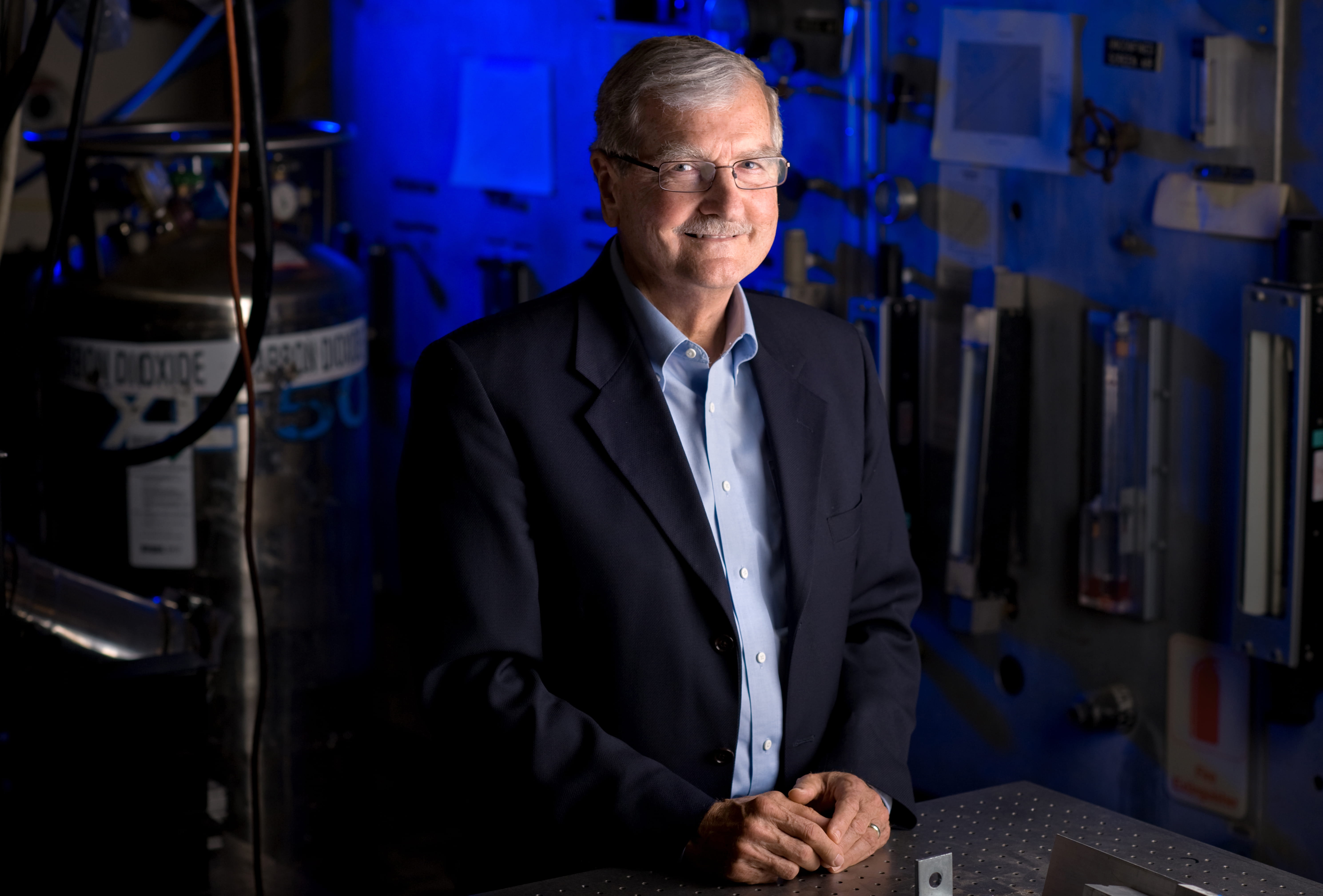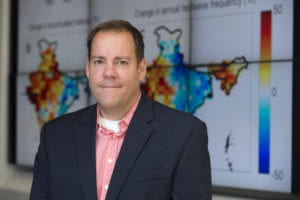Course of action
UCI among first campuses to offer interdisciplinary UC class fostering climate change solutions

Since 1750, humans have released more than 2 trillion metric tons of CO2 and other greenhouse gases into the atmosphere, and the planet’s rapidly increasing population – predicted to swell by another 2 billion people over the next 30 years – will only worsen these emissions. Relative to the preindustrial era, Earth’s average temperature is expected to rise 2 degrees Celsius by 2050. By the end of the century, the world could be a catastrophic 8 degrees warmer.
In response to the growing threat of climate change, the University of California has implemented a new, systemwide undergraduate class focused on sustainability ideas across disciplines. UCI is one of three campuses to offer the inaugural course, Bending the Curve: Climate Change Solutions, this winter quarter before it expands to three more UC campuses later in 2018.
The class is based on “Bending the Curve: 10 Scalable Solutions for Carbon Neutrality & Climate Stability,” a report published in 2015 by more than 50 UC scholars and researchers (and the source of the above data). Among its suggestions are creating incentives for businesses and individuals to reduce CO2 emissions; supporting the generation of clean electric energy and transportation; and fostering a “global culture of climate action” through education, communication and leadership summits.

To address this call for education and culture change, three UCI faculty members have converged to teach Bending the Curve: Scott Samuelsen, professor of mechanical & aerospace engineering and also civil & environmental engineering; Steven Davis, associate professor of Earth system science; and David Feldman, professor of urban planning & public policy as well as political science.
The class comprises about 40 students spanning a variety of majors and disciplines, including social ecology, Earth system science and engineering. They watch video lectures by UC experts who contributed to “Bending the Curve” and read the report itself; then they come together twice weekly to review material. This is what’s called a “flipped classroom” approach, in which students learn the subject matter independently and convene with the instructor to ask questions and engage in Socratic seminars.
“Our discussions are what make this course so valuable. We’re hashing out ideas across disciplines, coming up with solutions, and taking what we’re learning at UCI and applying it to the planet,” Feldman says.
His lectures focus on changing personal behavior, public action and foreign policy in response to climate change. He views California as a major sustainability leader: Since 1960, the state has reduced levels of particles and gases related to air pollution by more than 90 percent, largely due to environmental regulations and aggressive policy responses.
His colleague Samuelsen stresses the role of mechanical engineering in advancing cutting-edge green technology. While combustion-based devices such as traditional cars and electric plants generate 80 percent of the world’s power, they are also major sources of air pollutants and climate change gases, he says.
“Mechanical engineering contributes to the development and deployment of alternatives that are sustainable, such as fuel cells, solar, wind, batteries and renewable fuels,” Samuelsen says. “With key interdisciplinary support from electrical, civil and chemical engineering – as well as from the social, physical and business sciences – we can make a difference in the ways we produce power and utilize energy responsibly.”
He hopes the course will foster “an appreciation for the multifaceted engagement required to address climate change,” along with an understanding of the “paradigm shifts” in the creation of electric and vehicle power. As an example of progress, he cites UCI’s new all-electric bus fleet, the first of its kind in the country.

Davis, who studied political science, philosophy, law and geochemistry before settling on Earth system science, also emphasizes the necessity of collaboration.
“I think college is about expanding your worldview and, especially, beginning to face the fact that global issues like climate change often entail tough trade-offs and fundamental ethical quandaries,” he says. “Anyone who tells you that the answers are clear-cut is mistaken. There are real opportunities to ‘bend curves,’ or change the trajectory of climate change, but underestimating the challenges isn’t going to help us overcome them.”
According to Feldman, the course has already generated “tremendous interest” among UCI students. He expects that it will continue to be offered every winter quarter.
All three professors are eager to extend the class to even more students in the hopes that each individual, no matter what career he or she pursues, will be mindful of sustainability and help widen its impact.
“I think the interdisciplinary group of both lecturers and students reinforces the message that everyone has something important to contribute to solving the problem of climate change,” Davis adds. “Broad engagement on the topic is likely to be critical to ‘bending the curve.’”